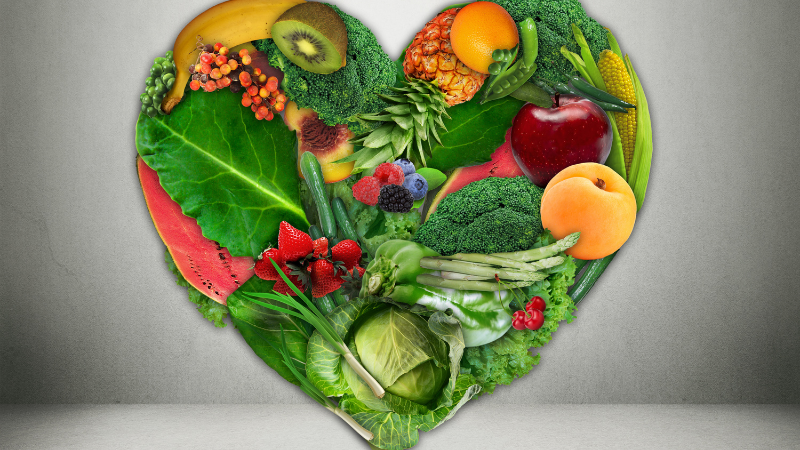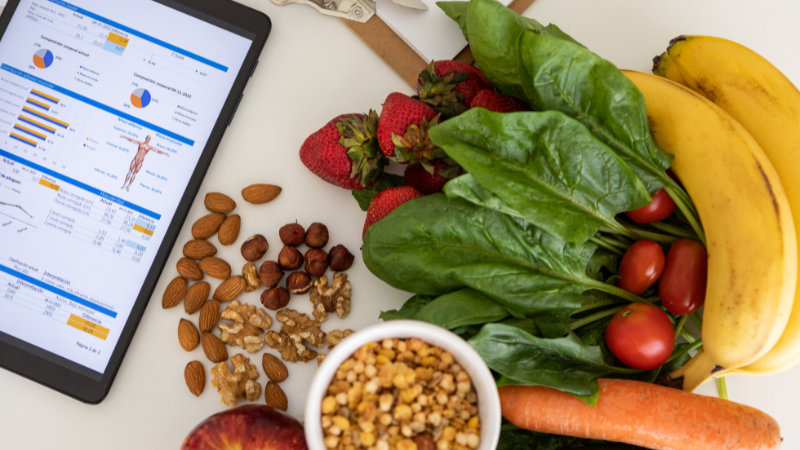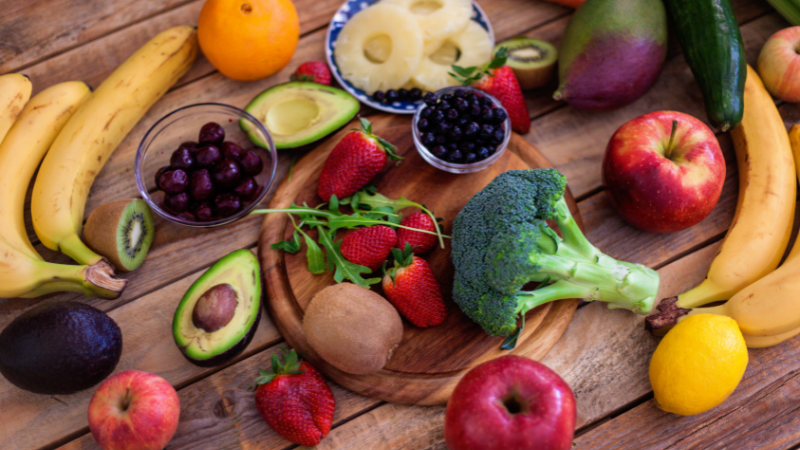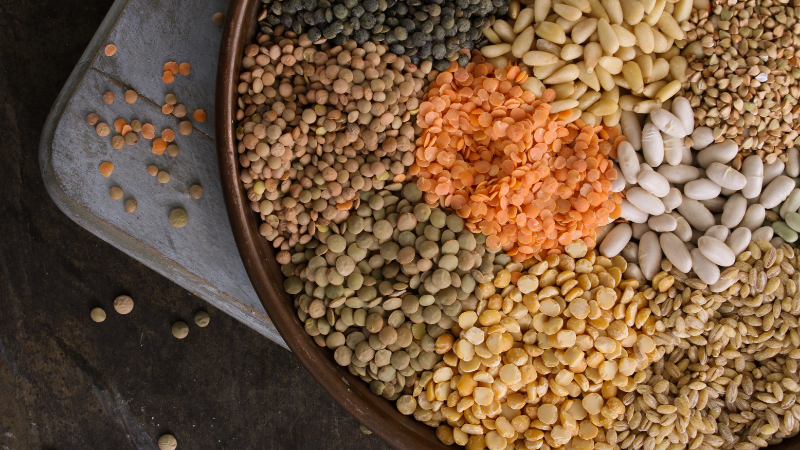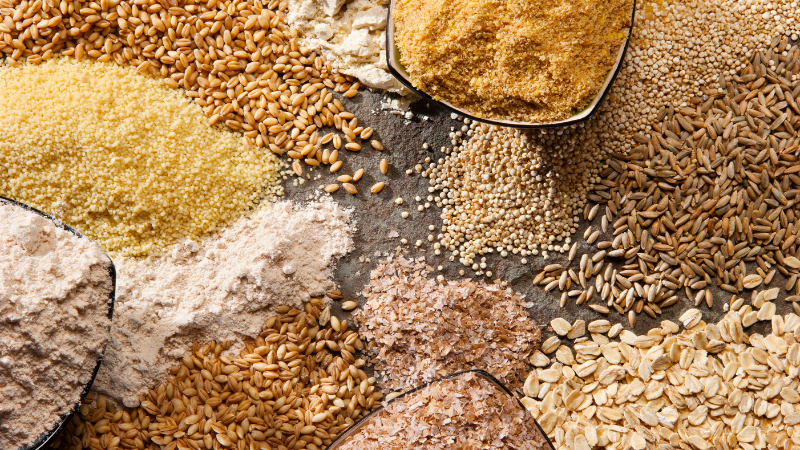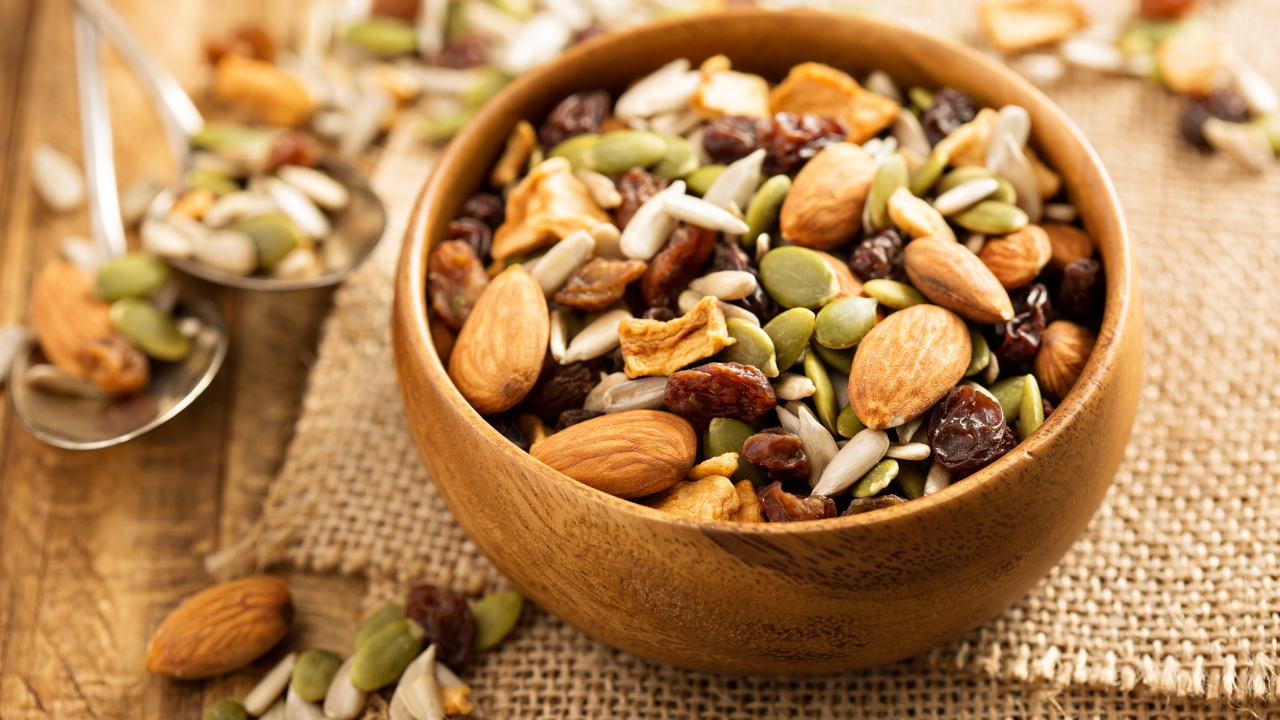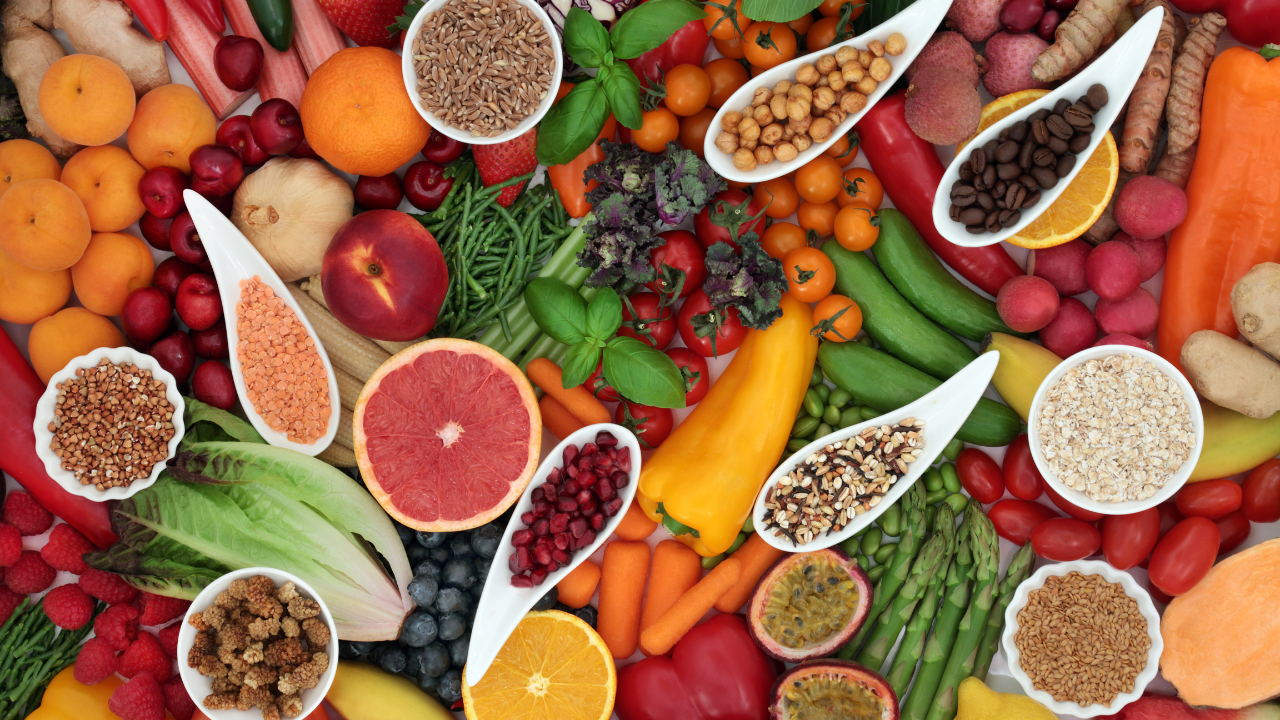Are you ready to embark on a journey toward a healthier heart? Look no further than the heart-healthiest plant-based diet! This article will provide ten practical tips to help you make the most out of your plant-based eating journey.
Research suggests that adopting a plant-based eating pattern can significantly improve heart health and reduce the risk of chronic diseases.With just a few simple changes, you can start reaping the rewards of a heart-healthy plant-based diet.
When you incorporate more fruits and vegetables into your daily meals, you'll provide your body with abundant essential vitamins, minerals, and antioxidants. These powerful nutrients work together to support optimal heart function and lower your risk of developing cardiovascular problems.
Together, let's dive into these ten tips and transform your eating habits for a healthier heart!
Key Takeaways
- Incorporate plenty of fruits and vegetables into your plant-based diet to provide essential vitamins, minerals, and antioxidants for optimal heart function.
- Choose plant-based proteins like beans, lentils, tofu, and quinoa to lower LDL cholesterol levels and reduce the risk of heart disease.
- Include fiber-rich foods such as whole grains, legumes, and seeds to help lower cholesterol levels and regulate blood sugar levels.
- Reduce salt intake and opt for herbs and spices to enhance flavor in your meals while maintaining a heart-healthy plant-based diet.
What is a plant-based diet
So you’ve heard a little about plant based diets. You’ve seen the documentaries, read the books, watched the news headlines. But what exactly is plant based food, and how can you start eating more of it? What kind of impact does it have on our health?
A plant based diet is, simply put, a diet which does not contain foods that come from animals - this includes all kinds of meat, fish, eggs, dairy products and honey. The basic idea is to eat what comes from plants and nothing that comes from animals.
If you want to improve your heart health, following a plant-based diet is a great way to start. A healthy plant-based diet such as a whole food plant-based diet revolves around eating whole, unprocessed plant foods, such as fruits, vegetables, beans, nuts, and seeds. This diet has been shown to reduce the risk of heart disease and promote overall cardiovascular health.
Plant based diets advocate to maximise the intake of whole plant foods, including fruits and dry fruits, vegetables and greens, pulses and legumes, whole grains including millets, nuts and seeds, herbs and spices, and even mushrooms! Technically, though, mushrooms are fungi, but plant-and-fungus-based-diet does not sound nearly as cool as a Plant-based Diet!
Plant-based diets minimise or exclude animal foods, such as meat, fish, eggs, honey, and dairy products, as well as processed foods, such as oil, sugar, jaggery, white rice, maida, and alcohol.
Following a plant-based diet can have numerous positive effects on your heart health. Focusing on whole foods such as fruits, vegetables, beans, and seeds while reducing processed foods high in saturated fats and added sugars provides your body with the nutrients it needs for optimal cardiovascular function.
Start by making small changes to incorporate more plant-based options into your daily meals; after all, every step counts towards improving your heart health!
Research on healthy plant-based diet and heart health
Numerous studies have consistently shown that adopting a plant-based diet can significantly reduce the risk of developing cardiovascular diseases.
For instance, a study published in the Journal of the American Heart Association found that individuals who followed a plant-based diet had a 32% lower risk of dying from heart disease than those who regularly consumed meat.
The benefits of a plant-based diet for heart health are attributed to its positive effects on blood pressure, cholesterol levels, and inflammation markers.
Plant-based foods such as fruits, vegetables, whole grains, legumes, nuts, and seeds are rich in fiber, antioxidants, vitamins, and minerals that promote healthy blood flow and protect against oxidative stress.
Moreover, these foods are naturally low in saturated fat and cholesterol and high in unsaturated fats, which can help lower LDL (bad) cholesterol levels.
Regarding protein intake on a plant-based diet, growing evidence suggests that it can be easily met through various sources without relying solely on animal products.
Plant-based proteins like beans, lentils, tofu, tempeh, quinoa, chia seeds, and hemp seeds are not only excellent sources of protein but also provide essential nutrients like fiber and phytochemicals.
Research has shown that replacing animal protein with plant protein may reduce the risk of heart disease by lowering LDL cholesterol levels.
Numerous studies on this topic consistently highlight the positive impact of consuming more plant-based foods on cardiovascular well-being.
1. Add more fruits and vegetables
Incorporating a variety of fruits and vegetables into your plant-based diet is essential for maintaining heart-healthy habits. These nutrient-packed foods are delicious and provide numerous benefits for your heart health.
- Fruits, such as berries, citrus fruits, and apples, are rich in antioxidants that can help reduce inflammation and protect against heart disease. They are also high in fiber, which can lower cholesterol levels and improve digestion.
- Vegetables like leafy greens, broccoli, and bell peppers contain vitamins, minerals, and phytochemicals that support cardiovascular health. They are low in calories but high in nutrients, making them an excellent addition to any heart-healthy diet.
By incorporating more fruits and vegetables into your plant-based diet, you will consume healthy foods that are naturally low in fat and cholesterol. This can help prevent plaque build-up in your arteries, reducing the risk of heart disease.
Furthermore, the fiber content in these plant foods helps regulate blood sugar levels and promotes a feeling of fullness after meals. This can aid weight management efforts vital for maintaining a healthy heart.
Adding more fruits and vegetables to your plant-based diet is an effective way to enhance your heart health.
These nutrient-dense foods provide numerous benefits, such as reducing inflammation, lowering cholesterol levels, regulating blood sugar levels, and aiding weight management efforts.
2. Importance of eating greens daily
Boost your overall well-being and create a vibrant plate by ensuring you eat greens daily. Leafy greens are an essential part of a heart-healthy plant-based diet. They are packed with nutrients and fiber, which can help lower your risk of heart disease.
Here are three reasons why incorporating leafy greens into your daily meals is crucial for your heart health:
- Rich in Nutrients: Leafy greens such as spinach, kale, and Swiss chard are loaded with vitamins and minerals that benefit your heart. These include potassium, magnesium, folate, and vitamin K. Potassium helps regulate blood pressure, while magnesium plays a role in maintaining a healthy heartbeat. Folate helps reduce levels of homocysteine in the blood and is linked to an increased risk of heart disease.
- High in Fiber: Fiber is an essential nutrient for maintaining a healthy heart. Leafy greens are excellent sources of dietary fiber, which can help lower cholesterol levels and improve digestion. By including more fiber-rich foods in your diet, you can decrease the absorption of cholesterol from food and promote better heart health.
- Low in Calories: If you want to maintain or lose weight while following a plant-based diet for heart health, leafy greens should be at the top of your list. They are low in calories but high in volume since they contain mostly water and fiber. This means you can enjoy generous portions without worrying about excess calories or compromising taste.
By incorporating leafy greens into your daily meals, you add fresh flavors to your plate and reap numerous heart health benefits.
3. Amla the superfood
Amla, also known as the Indian gooseberry, is a superfood that will leave your taste buds tingling with its tangy and refreshing flavor. Not only does it add a burst of flavor to your meals, but it also comes packed with numerous health benefits.
Amla is an excellent fiber source, essential for maintaining a healthy digestive system. By including this superfood in your diet, you can ensure that you are getting enough fiber from plant sources.
When it comes to heart benefits, amla is truly remarkable. Studies have shown that consuming amla regularly can help improve cardiovascular health by lowering blood pressure and reducing cholesterol levels.
High blood pressure is a significant risk factor for heart disease, so incorporating amla into your dietary choices can be beneficial for keeping your heart healthy.
In addition to its heart benefits, amla is also rich in antioxidants and vitamin C.
Antioxidants help protect the cells in our body from damage caused by free radicals, which can contribute to chronic diseases like heart disease and cancer. Vitamin C is essential in boosting our immune system and promoting overall health.
So why not give this superfood a try? If you add fresh or powdered amla to your smoothies or salads, you can easily get all the nutrients from this amazing fruit in your diet.
4. Eat more pulses, lentils and legumes
Now that you know about the incredible benefits of Amla, let's dive into another essential component of a heart-healthy plant-based diet: pulses, lentils, and legumes. These humble ingredients are powerhouses for nourishing your body and supporting your cardiovascular health.
First and foremost, pulses, lentils, and legumes are excellent sources of fiber. Fiber plays a crucial role in maintaining a healthy heart by lowering cholesterol levels and reducing the risk of heart disease. Incorporating these plant-based proteins into your diet will provide your body with the necessary nutrients for optimal heart health.
Pulses, lentils, and legumes are also rich in other essential nutrients like potassium, magnesium, and folate. Potassium helps regulate blood pressure levels, while magnesium supports proper muscle function and promotes healthy blood vessels. Folate is essential for reducing homocysteine levels in the blood, which can contribute to heart disease if elevated.
Incorporating more pulses, lentils, and legumes into your diet is beneficial for your heart and maintaining a healthy weight. These foods are low in fat but high in protein and fiber content, and a winning combination for feeling satisfied after meals without overindulging in unhealthy options.
Incorporating more plant-based proteins into your meals can contribute to a heart-healthy diet. Tofu, tempeh, edamame, chickpeas, nuts, and seeds are excellent sources of protein that can help lower the risk of heart disease when consumed the whole food plant-based way!
By making this simple yet impactful diet choice, you'll take significant steps towards better heart health while enjoying delicious meals supporting overall well-being.
5. Switch to whole grains
To improve your cardiovascular health, consider switching to whole grains for a nourishing and satisfying addition to your meals. Whole grains are essential to a heart-healthy plant-based diet due to their high fiber content.
Fiber plays a crucial role in maintaining healthy cholesterol levels and reducing the risk of heart disease. Incorporating whole grains into your meals can effectively lower LDL (bad) cholesterol levels and improve overall heart health.
Additionally, whole grains help regulate blood sugar levels, making them an excellent choice for individuals with diabetes or those looking to prevent it.
The complex carbohydrates found in whole grains are digested more slowly than refined grains, resulting in a gradual release of glucose into the bloodstream. This slow release helps stabilize blood sugar levels, preventing spikes and crashes that can negatively impact cardiovascular health.
Including whole grains in your diet promotes satiety and aids in weight management. The high fiber content of these grains keeps you full for extended periods, reducing the tendency to overeat or snack on unhealthy foods. This contributes to maintaining a healthy weight and supports overall heart health by lowering the risk factors associated with obesity.
Incorporating whole grains into your meals is an easy and practical way to enhance the heart healthiness of your plant-based diet. Choose options such as quinoa, brown rice, oats, barley, or whole wheat bread instead of refined counterparts like white rice or white bread.
6. Cut out refined sugar
Make a conscious effort to eliminate refined sugar from your meals and snacks to improve your overall well-being and support a healthier lifestyle. Refined sugar, which is found in many processed foods and sugary beverages, can have detrimental effects on your health.
Cutting out refined sugar can reduce your risk of developing heart disease and lower your blood pressure. Instead of reaching for sugary treats, opt for natural sources of sweetness, such as fruits and vegetables that are high in fiber and nutrients.
When you eliminate refined sugar from your diet, you'll reduce your intake of empty calories and improve the quality of the foods you consume. Fruits and vegetables are packed with essential vitamins, minerals, antioxidants, and fiber that benefit heart health.
Fiber helps to lower cholesterol levels and regulate blood sugar levels, reducing the risk of heart disease. You'll increase your fiber intake by choosing whole grain bread and whole wheat roti instead of refined grains like white bread or pasta.
By making these simple changes to your diet, you'll be taking significant steps toward supporting a healthy heart and overall well-being.
7. Switch to oil-free cooking
Try switching to oil-free cooking for a delicious and guilt-free way to prepare your meals. Cooking without oil is not only beneficial for your heart health, but it also helps you reduce your calorie intake and maintain a healthy weight.
Replacing unhealthy fats with healthier alternatives such as nut butters could benefit your health and taste buds alike. These foods are packed with essential nutrients and will keep you feeling full and satisfied throughout the day.
When you cook with oil, it adds unnecessary fat to your meals. While some fats are healthy, intake of unhealthy fats such as oil can lead to weight gain and increase the risk of heart disease. You significantly reduce your cholesterol intake by eliminating oil from your cooking process.
Research has shown that an oil-free whole food plant-based diet can benefit your heart health. Also, by adopting an oil-free cooking style, you are following the principles of this heart-healthy eating plan.
Switching to oil-free cooking improves blood vessel health by reducing the amount of fat clogging arteries over time.
Incorporating more fiber-rich foods into your meals while replacing oils with nut butters will help support optimal heart function while keeping cholesterol levels in check.
8. Include nuts and seeds for healthy fat
Including nuts and seeds in your meals adds a delicious crunch and provides essential healthy fats for overall well-being. Not only do they make your meals more satisfying, but they also offer numerous health benefits.
Nuts and seeds are excellent sources of omega fatty acids, which are crucial for brain function and reducing inflammation. Additionally, they are packed with protein, making them an ideal choice for plant-based proteins.
Regarding heart health factors, incorporating nuts and seeds into your diet can be incredibly beneficial. Research has shown that consuming nuts and seeds regularly can help lower cholesterol levels and reduce the risk of heart disease.
This is because they contain monounsaturated fats, proven to improve overall cardiovascular health. So by including a variety of nuts like almonds, walnuts, or cashews, and seeds such as chia or flaxseeds in your meals, you can take a significant step towards improving your heart health.
Not only are nuts and seeds great sources of healthy fat, but they also provide an array of other essential nutrients. For example, hemp seeds are rich in magnesium, iron, zinc, and vitamin E.
These nutrients support immune function, promote bone health, and maintain healthy skin. By incorporating different types of nuts and seeds into your diet regularly, you can ensure you get a wide range of nutrients that contribute to your overall well-being.
Remember to include a handful of nuts or sprinkle some seeds on top of salads or smoothies to add flavor while boosting the nutritional value of your meal. With their omega fatty acids, protein content, and vital nutrients, nuts, and seeds truly deserve their place in any heart-healthy plant-based diet.
9. Lower your salt intake
Cutting back on salt is like removing a shroud of fog, revealing the true flavors and vibrant colors of your meals. A high-salt diet has been linked to increased blood pressure and heart disease risk. Reducing your salt intake can help protect your heart and improve your overall health.
One way to lower your salt intake is to focus on eating more plant-based foods. These foods are naturally low in sodium and high in fiber, which can help regulate blood pressure. Include plenty of green vegetables, such as spinach and kale, in your meals. These veggies are not only packed with essential nutrients but also have a low sodium content. Additionally, frozen vegetables are a convenient option that retains nutritional value while being lower in sodium than canned varieties.
Another tip for reducing salt in your diet is to cook at home using fresh ingredients. This allows you to control the amount of salt added to your meals. Instead of relying on processed or packaged foods, opt for whole foods naturally low in sodium. Use herbs and spices to enhance the flavor of your dishes instead of relying on salt for taste. Incorporating extra-virgin olive oil into your cooking can add richness and depth without excessive amounts of sodium.
Another tip is to replace salt with healthier alternative such as miso paste. Did you know that miso, a fermented product, has some amazing health benefits? Various studies have revealed that miso has properties that can help improve digestion, boost your immune system, and even fight off harmful oxidants.
Lowering your salt intake is crucial for maintaining a heart-healthy plant-based diet.
10. Eat a low fat plant-based diet
A low-fat, plant-based diet is a powerful tool in reducing your heart disease risk.
By focusing on fiber-rich foods such as fruits, vegetables, and whole grains, you can keep your heart healthy while enjoying various delicious vegan options.
One of the fundamental principles of a low-fat plant-based diet is to minimize the consumption of high-fat animal products like dairy.
Instead, opt for dairy alternatives that are lower in fat and cholesterol, or try incorporating more plant-based sources of calcium into your meals. Foods like tofu, fortified non-dairy milks, and leafy greens can provide you with the essential nutrients found in dairy without the excess fat.
Increasing your consumption of healthy whole plant foods such as fruits, vegetables, legumes, lentils, nuts and seeds automatically helps you lower your consumption of unhealthy and high fat food
Practicing mindful eating and paying attention to your body's hunger cues, drinking plenty of water, can help you can avoid overindulging in these tasty yet low-fat vegan options.
Frequently Asked Questions
Can a plant-based diet provide all the necessary nutrients for good heart health?
Yes, a plant-based diet can provide all the necessary nutrients for good heart health. By focusing on whole foods like fruits, vegetables, legumes, and grains, you can lower your risk of heart disease and improve your overall well-being.
Are there any specific fruits and vegetables that are particularly beneficial for heart health?
Include a variety of fruits and vegetables in your plant-based diet for optimal heart health. Berries, leafy greens, avocados, and tomatoes are excellent choices due to their high fiber, antioxidants, and nutrient content.
How can I incorporate more whole grains into my plant-based diet?
To incorporate more whole grains into your plant-based diet, try incorporating options like quinoa, brown rice, and whole wheat bread. These provide essential nutrients and fiber that are beneficial for heart health.
Is it necessary to completely eliminate refined sugar from a heart-healthy plant-based diet?
To maintain a heart-healthy plant-based diet, reducing or completely eliminating refined sugar intake is beneficial. You could replace refined or added sugar with healthier natural sweeteners such as fruits, unfiltered date syrup, date sugar, molasses and stevia to satisfy your cravings.
Can you provide some examples of oil-free cooking techniques that can be used in a plant-based diet?
To cook oil-free in a plant-based diet,
- Try sautéing with water or vegetable broth.
- Use cast iron tawa/steel/clay/stone utensils.
- Roast vegetables with nut butter instead of oil.
- Bake with applesauce or mashed bananas instead of oil.
Enjoy delicious and heart-healthy meals!
Conclusion
In conclusion, embracing a plant-based diet is the ultimate key to unlocking a heart-healthier lifestyle. By incorporating more fruits and vegetables into your daily meals, you are providing your body with a powerhouse of essential nutrients that can help ward off heart disease.
And let's remember the importance of greens! These leafy wonders are like tiny heart superheroes, packed with vitamins and minerals that can give your cardiovascular system the boost it needs.
But wait, there's more! Have you heard about Amla? Amla is a superfood and a secret weapon against heart-related issues. Its high antioxidant content helps protect your precious ticker from oxidative stress.
And if you really want to take it up a notch, why not switch to oil-free cooking? You're giving your heart a break from unnecessary fats and calories by eliminating added oils from your dishes.
Oh, and let's not forget about nuts and seeds! These little powerhouses provide healthy fats that can improve your heart health. So go ahead and sprinkle some chia seeds on your morning oatmeal or snack on some almonds in between meals - your heart will thank you for it!
And remember, less is definitely more when it comes to sodium intake! Lowering your salt intake can significantly reduce the risk of hypertension and other heart-related problems. So be mindful of those salty snacks and choose flavor-packed herbs and spices.
Lastly, adopting a low-fat, whole food plant-based diet can have tremendous benefits for your cardiovascular health. By reducing the amount of saturated fats in your meals and focusing on wholesome plant-based sources of nutrition, you'll be taking giant leaps towards keeping your heart happy and strong.
So there you have it - 10 tips for the most heart-healthiest plant-based diet imaginable! With these simple yet effective changes to your eating habits, you'll be well on your way to becoming the picture of vibrant health.
Your heart deserves nothing less than the very best, so why not give it the nourishment it craves? Start today and watch as your heart sings with joy!
Next Steps
Congratulations! You've successfully discovered the 10 essential tips for embracing a heart-healthy plant-based diet.
Here are some incredible tools to support your transition towards a wholesome, plant-powered lifestyle,
- Book an online consultation with Dr. Achyuthan Eswar for a personalized medical consultation to prevent, treat and better manage lifestyle diseases through diet and lifestyle.
- Learn to cook delicious whole food plant based goodies and sign up for courses on health and wellness from the comfort of you home. Join our online courses from anywhere in the world.
- Get daily essentials to cook healthy meals at home.
- Stock up on delicious sweets and snacks that are sugar/jaggery-free, oil-free, maida-free and plant-based - Available Pan-India.


